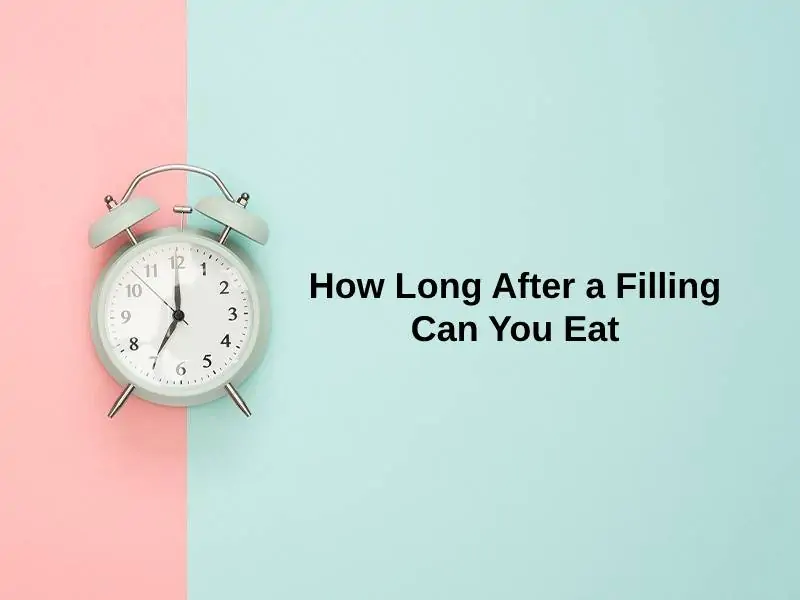Exact Answer: After 24 Hours
Tooth decay is one of the major issues faced by most individuals nowadays. With tooth decays, comes unwanted, unbearable pain. In this case, the dental filling comes to one’s rescue.
The process of dental filling helps in the restoration of the tooth that was damaged by decay. The decayed tooth part is removed and the leftover space is filled with some specific material.
But the main area of concern that arises soon after is when can we start eating again, after going through this tooth filling procedure.

How Long After a Filling Can You Eat?
It is advisable to eat food, only after 24 hours if you had a filling treatment. But this time durations may differ, based on the type of filling you had opted for. This is because different fillings take different duration to set.
The dentist first uses some anesthetic to numb that area. Then, a drill or laser instrument is used to remove the decayed part. The area is cleaned and then the filling process takes place.
Composite fillings are known to harden very fast. You really don’t wait very long to eat anything. But it is better to avoid chewable food as it might increase the swelling /pain around the treated tooth. The dentists, too, advise to have food only after 2-3 hours or so.
Silver/Gold/Porcelain filling material had been used for a long time. And these fillings take a long time to set completely. One may consider 24 hours for this process to complete. If a person eats before this, a premature fracture/ restoration may occur. And no one wants this. So better eat anything only after 24 hours.
The resin-based filling is used by most dentists nowadays. This hardens with the help of UV- light. The patient may eat/drink soon after the treatment.
In Summary:
| Type of Filling | Time |
| Composite Filling | 2 Hours |
| Silver/Gold/Porcelain Filling | 24 Hours |
| Resin-based Filling | Soon after the procedure. But it is advised to avoid eating for an hour or two. |
Why Does it Take So Long to Eat After a Dental Filling?
Sensitivity is the main reason why a person must avoid eating after such treatment. It is a common experience that the tooth becomes much more sensitive to air, cold/hot food (drink). So, the doctors advise taking food only after 24 hours of the treatment.
Before this dental treatment, dentists make use of some medicine to numb the area. This is done so as the patient doesn’t feel much pain when the treatment is ongoing. Even after the process, the medicine effect is still there. Eating anything during this time period may cause one to bite one’s tongue/cheeks/lips accidentally.
After getting a filling, a person may feel uncomfortable because he is not used to it. Every time he eats, his tongue will go to that place itself while eating anything. Also, the gum tissues near that tooth are swollen, eating something may further increase it.
Fillings, especially the metal ones take a long time to settle. When you take a bite, make sure if it’s even or not. If not, visiting your dentist might be a better option. To experience pain after this dental treatment, it is common to experience pain. But if it lasts more than a week, contact the dentist. Keeping your teeth clean will help the fillings to last longer. Stick to a proper cleaning schedule. No more sweets. Soon after the treatment, avoid sugary food/drink as this might trigger some bacterial growth.
Conclusion
In short, if you had a dental filling treatment, you should avoid eating anything for near about 24 hours. Or else, if it was a white tooth filling, waiting for 3 hours will be a good idea.
The patient may opt to take health, soft food, and lukewarm soups. Also, patients can have cool (not cold) smoothies made of bananas, berries, etc. But it’s a big no to ice-creams. Chewable food like pizza etc. is a big no.